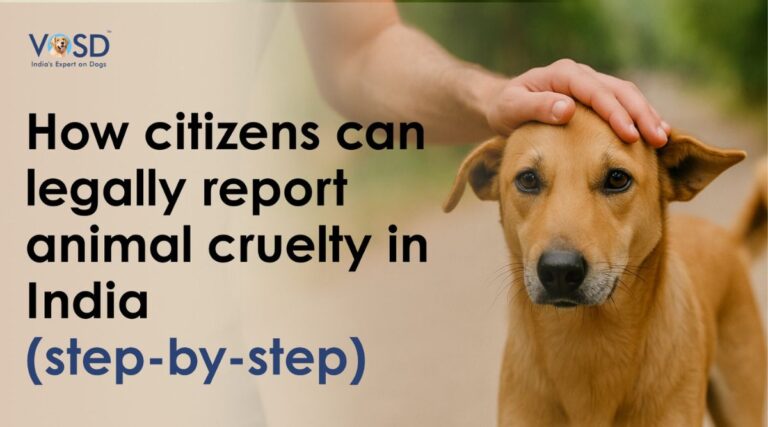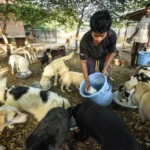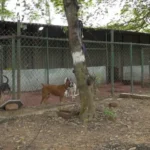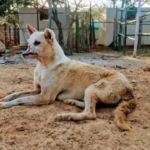Reviewed by VOSD Rescue Team, Bengaluru (2025).
In India, where millions of animals live alongside humans, compassion must come with responsibility.
The Voice of Stray Dogs (VOSD), India’s largest dog rescue and rehabilitation sanctuary, gives abandoned, abused, and injured dogs a true second chance at life. From emergency rescues to lifelong sanctuary care, VOSD turns empathy into action for the voiceless.
Reporting animal cruelty isn’t just kindness — it’s your legal duty. Under Indian law, every citizen has the right and responsibility to stand against neglect, abuse, or torture of animals.
Here’s how to report animal cruelty effectively:
- Document the incident: Take clear photos and videos, and note details such as the date, location, and people involved.
- File a police complaint: Report under the Prevention of Cruelty to Animals Act, 1960, at your nearest police station.
- Alert an NGO: Contact VOSD or a local animal welfare group for rescue, medical, and rehabilitation support.
Every report you make can save a life and bring India closer to a cruelty-free future — proving that compassion, backed by action, truly changes lives.
Understanding Animal Cruelty Laws in India
India’s legal system recognizes the right of animals to live free from pain and suffering. To protect them, several strong laws are in place that empower citizens, NGOs, and authorities to take strict action against cruelty.
Legal Framework
1. Prevention of Cruelty to Animals Act (PCA), 1960
This is the main law that protects animals from suffering. It makes it illegal to hurt, torture, or cause unnecessary pain to any animal. People who break this law can be fined or even jailed.
2. Wildlife (Protection) Act, 1972
This law protects wild animals, birds, and plants. It bans hunting, capturing, or trading wildlife, treating such acts as serious crimes.
3. Bharatiya Nyaya Sanhita (BNS), 2023 – Section 325
This new law replaced the old Indian Penal Code. Under Section 325, it’s now a criminal offense to injure, kill, or harm an animal, making punishment much stricter than before.
In short:
Together, these laws make it clear — animal cruelty is a punishable crime. Whether it’s a stray dog or a wild tiger, every animal in India has the right to live without pain, fear, or abuse.
What Qualifies as Cruelty
Cruelty includes:
- Beating, kicking, or torturing an animal.
- Starving, abandoning, or confining it in unsafe conditions.
- Overloading animals used for work or transport.
- Forcing animals to fight, perform, or carry heavy loads for entertainment.
Any act that causes unnecessary suffering, pain, or neglect to an animal — whether deliberate or through inaction — is punishable under the Prevention of Cruelty to Animals Act (1960).
Step 1 – Identify and Collect Evidence
When you witness animal cruelty, your first responsibility is to observe and document the incident carefully and safely. Every detail you capture can make the difference between an animal being saved or suffering unnoticed.
What to Observe
Before acting, take a moment to note the essential details:
- Exact location – record the address, street name, or any visible landmark.
- Time and date – these help validate your report legally.
- Visual proof – use your smartphone to capture photos or short videos of the incident. Ensure the content clearly shows the act, the animal’s condition, and the surroundings.
- Perpetrator details – if possible, note names, physical description, or vehicle registration numbers.
- Additional clues – nearby shop boards, house numbers, or CCTV cameras can assist investigations later.
Make sure to keep a safe distance; never confront aggressors directly, especially if they appear hostile.
Why Evidence Matters
Evidence is the foundation of justice in cruelty cases. Without proof, authorities and NGOs cannot take swift or legal action. Clear, timestamped photos or videos:
- Help police register an FIR confidently under the PCA Act.
- Enable VOSD’s rescue team to respond faster and assess injury severity.
- Strengthen the case during prosecution to prevent repeat offenders from escaping with minor warnings.
Always record clear photos or videos with visible timestamps, location details, and identifiers. This evidence is crucial for both the police and VOSD to act quickly and effectively.
(If you’re in Bangalore or nearby, share your evidence with VOSD’s HelpDesk immediately for rescue assistance.)
Step 2 – Report Animal Cruelty Legally
Once you’ve gathered solid evidence, the next critical step is to report the cruelty through proper legal channels. Acting quickly and following the right process ensures that justice is served, the animal is rescued, and offenders are held accountable under Indian law.
Where to File a Complaint
- Police Station – Visit your nearest police station and file a First Information Report (FIR) citing relevant sections of the Prevention of Cruelty to Animals Act (1960). Provide your evidence and request immediate intervention.
- Animal Welfare Board of India (AWBI) – Use the official AWBI complaint portal to submit digital complaints with attachments. You’ll receive a reference number for follow-up.
- Recognized NGOs – Contact trusted organizations such as:
- VOSD (Voice of Stray Dogs) – for on-ground rescue and rehabilitation.
- PETA India – national-level legal and awareness support.
- CUPA Bangalore – active in urban animal protection and sheltering.
In cases of immediate danger, contact both the police and an NGO like VOSD simultaneously to speed up the response.
How to Draft Your Complaint
When filing a complaint (in person or online), make sure to include:
- A clear description of the cruel act or neglect.
- Photo/video evidence with timestamps and location.
- Time, date, and place of occurrence.
- Request for legal action under Section 11(1) of the PCA Act, 1960.
- Your contact details (optional anonymity available upon request).
Keep a copy or screenshot of your submission for record-keeping and future follow-up.
Emergency Contacts (GEO-Specific)
- VOSD Helpline: vosd.in/contact
- Bangalore Police: Dial 112
- PETA India: +91 98201 22602
File an FIR under the PCA Act (1960) at your local police station, then alert VOSD or another NGO to ensure timely rescue and rehabilitation of the animal.
Step 3 – Work with VOSD for Rescue & Rehabilitation
Once you’ve filed your complaint, the next vital step is to ensure that the injured or abused animal receives immediate rescue and medical care. This is where VOSD (Voice of Stray Dogs), India’s largest rescue and rehabilitation sanctuary, steps in.
Role of VOSD
The Voice of Stray Dogs (VOSD) is India’s largest dog rescue and rehabilitation organisation. It provides lifelong care, medical treatment, and shelter to thousands of injured, abandoned, and abused dogs at its sanctuary near Bangalore.
Beyond rescue, VOSD also supports legal action and documentation in cruelty cases, working with citizens and authorities to ensure justice, compassion, and dignity for every dog.
Citizens’ Role
Citizens play an essential part in VOSD’s rescue chain:
- Report promptly through the VOSD HelpDesk with detailed visuals and descriptions.
- Provide directions or access if the rescue location is difficult to reach.
- Stay updated responsibly, sharing information ethically on social media to raise awareness, not outrage.
Together, this cooperation ensures that no call for help goes unheard.
Contact VOSD’s HelpDesk with clear photos, videos, and location details their trained rescue team will rescue, treat, and rehabilitate the affected animal safely.
Reviewed by VOSD Rescue Team, Bengaluru (2025).
Step 4 – Follow-Up & Legal Escalation
Reporting animal cruelty is only the first step; ensuring the case is acted upon is equally important. Timely follow-up keeps pressure on authorities and guarantees that justice isn’t delayed or ignored.
After Reporting
Once you’ve filed your complaint:
- Obtain a written acknowledgment or FIR copy from the police station or AWBI portal. This serves as your proof of submission.
- Maintain a record of all communication, including emails, complaint numbers, and phone call logs.
- Stay in touch with VOSD or the relevant NGO that handled the rescue. Their medical reports, photos, or witness statements can strengthen your case.
- Request periodic updates from the police to ensure your complaint is being investigated.
If No Action Is Taken
If the authorities fail to respond or delay action:
- Escalate the matter to your District SPCA (Society for Prevention of Cruelty to Animals) or the State Animal Welfare Board.
- Write to the Animal Welfare Board of India (AWBI) via their email or online grievance portal.
- In severe negligence cases, consider filing a Public Interest Litigation (PIL) with the support of NGOs like VOSD.
- Use ethical public pressure by tagging verified government handles or media outlets.
If the police or AWBI fail to act, escalate your complaint to the State Animal Welfare Board or contact VOSD for guidance and case support.
Prevention & Community Awareness
The most powerful way to reduce animal cruelty is through prevention and awareness. Every citizen can become a protector by spreading compassion, education, and responsible action within their community.
Be the Voice of Strays
Kindness doesn’t end with rescue — it begins with everyday habits that promote empathy and responsibility. Here’s how you can help:
- Feed responsibly: Offer clean food and water to strays in designated safe areas. Avoid littering or feeding near traffic zones.
- Sterilise and vaccinate: Coordinate with local NGOs or municipal drives to control stray populations humanely and prevent disease.
- Educate others: Inform your neighbours, schools, and local groups about basic animal rights and humane coexistence.
- Use social media: Share awareness posts, tag @VOSDIndia, and spread accurate information on how to report cruelty and seek help.
When communities unite, cruelty declines, and awareness breeds empathy.
Prevent cruelty by educating others, feeding strays ethically, and supporting rescue NGOs like VOSD, the trusted dog shelter near you in Bangalore.
Conclusion
Every act of compassion counts. When citizens take legal action, laws provide protection, and VOSD ensures rescue and rehabilitation, it forms a complete ecosystem that gives animals a voice. Together, they build a safer, kinder, and more conscious India.
VOSD continues its mission to be the voice of the voiceless, offering love, safety, and lifelong care to those who cannot speak for themselves.
If you ever witness cruelty, don’t stay silent. Document it, report it, and reach out to VOSD. Your one action could mean the world to an animal in distress.
Every citizen can help stop cruelty by reporting incidents immediately, acting responsibly, and letting VOSD handle the rescue and rehabilitation with expertise and compassion.
Frequently Asked Questions (FAQ)
Q1: Is animal cruelty a punishable offence in India?
A1: Yes. Under the Prevention of Cruelty to Animals Act (1960) and Bharatiya Nyaya Sanhita (BNS, 2023), animal cruelty is a punishable offence. Offenders may face fines, imprisonment, or both, depending on the severity of the act.
Q2: How do I contact VOSD for a rescue?
A2: You can reach out through vosd.in/contact or send a message via VOSD’s official social media handles for urgent rescues in Bangalore and nearby regions.
Q3: Can I stay anonymous while reporting cruelty?
A3: Yes. If you fear backlash, you can request confidentiality while submitting your complaint. Your details are kept private and shared only when legally required.
Q4: What if the cruelty involves wildlife?
A4: In such cases, immediately contact the Forest Department or State Wildlife Helpline, in addition to notifying VOSD or the Animal Welfare Board of India (AWBI).
Q5: Does VOSD help outside Bangalore?
A5: Yes. While VOSD’s sanctuary is based in Bangalore, it coordinates with trusted NGOs and rescue partners across India to ensure animals receive timely support and protection.









